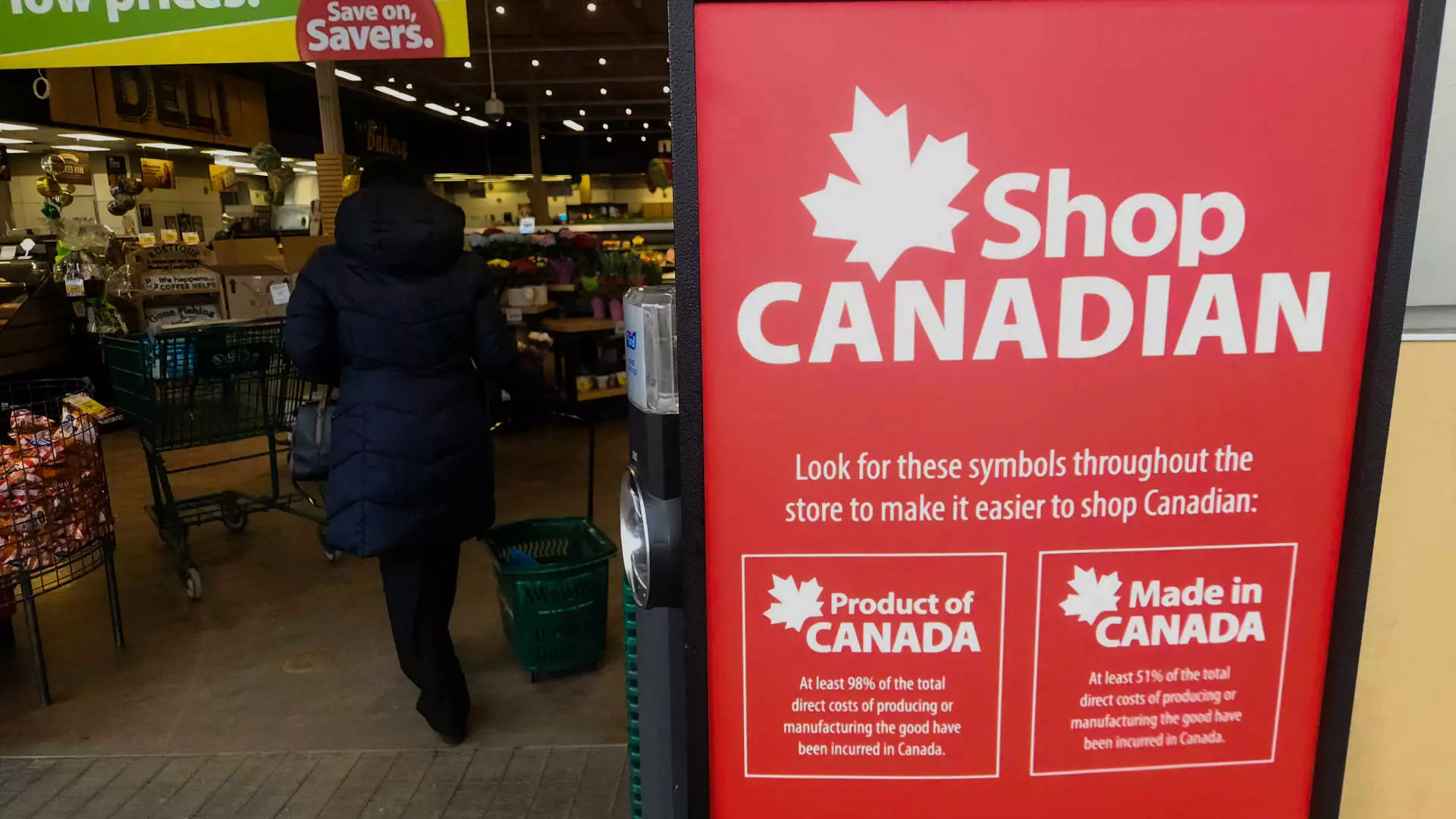The intricate web of trade relations between the United States and Canada, which once represented a symbiotic partnership crucial to both nations’ economies, has been severely strained by an aggressive tariff strategy. As the Trump administration pursued a protectionist agenda, the knock-on effects have reverberated through the business fabric of both nations, leaving a swarm of small enterprises grappling with a rapidly shifting economic landscape. While these tariffs are positioned as a means to bring manufacturing back to American soil and re-balance international trade, the emotional toll and erosion of trust suggest that the long-term consequences could be dire for both sides.
The Economic Reality of Tariffs
In 2024, trade between Canada and the U.S. soared to an impressive $762.1 billion, illustrating the deep economic ties that both countries have long relied upon. This interdependence is especially vital for Canada, which exports over three-quarters of its goods to the U.S., making the new tariffs a knife through the heart of the Canadian economy. The Trump administration’s implementation of a 10% tariff on Canadian energy and a whopping 25% on other imports is more than just a disruptive force—it’s a direct assault on trust in trade relations.
Small businesses, which are often the backbone of the economy, must navigate these turbulent waters with ingenuity and resilience. However, they’re grappling with rising costs and intricate negotiations to reallocate expenses resulting from new tariffs. This quandary not only impacts their financial standing but also fosters a sense of trepidation about the future of their transnational partnerships.
Canadian Response: The Awakening of National Pride
Canada’s response has taken on a more emotive dimension, transcending mere economic retaliation. Companies like Balzac’s Coffee Roasters have pivoted creatively; by renaming their Americano to “Canadiano,” they inject a sense of nationalism into their branding. The call for patriotic consumerism doesn’t stop there; grocery chains are identifying Canadian-made products explicitly, nudging consumers toward supporting domestic production. The Canadian Federation of Independent Business (CFIB) reveals that about half of its 100,000 members engage in cross-border trade, and many feel the deep sting of betrayal—an emotional response that hints at a fractured relationship that may take years to heal.
The stark change in consumer behavior isn’t merely an act of defiance; it reflects a profound shift in identity and a desire to reinforce domestic economic strength. While the desire to shield local businesses against external pressures is understandable, it raises complex questions about the future viability of many enterprises entrenched in a location-based production model.
The Soft Power Dilemma
What often goes unnoticed in financial analyses of tariffs is their impact on soft power—an area where the U.S. generally excels. The established relationships fostered through longstanding trading norms have historically elevated American influence on the world stage. The current tariff policies are chipping away at this influence, as sentiments of betrayal raise doubts about the reliability of the U.S. as a trading partner. Former Secretary of State Antony Blinken’s remarks draw a concerning picture—while tariffs may aim to enforce hard power through economic coercion, they risk diminishing the U.S.’s soft power, ceding ground to emerging rivals.
Canada’s reliance on the U.S. is real yet complicated. The notion that trade relationships can be built and dismantled so easily stems from a lack of understanding of the historical significance of these ties. The emotional and psychological implications of such betrayal could linger long after the tariffs are lifted.
The Future of U.S.-Canada Relations
As the dust settles, the long-term impact remains uncertain. The CFIB suggests that trust has been eroded to a degree that will be difficult to recover. Even if President Trump were to reduce or eliminate tariffs, the scars inflicted during this tumultuous period could be permanent. Entrepreneurs are undoubtedly reevaluating their business strategies and determining how best to move forward in an environment marked by uncertainty.
From a center-right perspective, the dialogue surrounding tariffs necessitates a more nuanced approach—one that recognizes the realities of globalization while advocating for fair trading practices. A shift from hard-lined policies to more collaborative solutions could provide the necessary framework to restore faith and cooperation between the two nations. All parties should be conscious that industrial policy should not come at the expense of established relationships, especially with a neighbor as crucial as Canada. As it stands, failure to mend these ties could result in a lost economic partnership that neither country can afford to overlook.


Leave a Reply